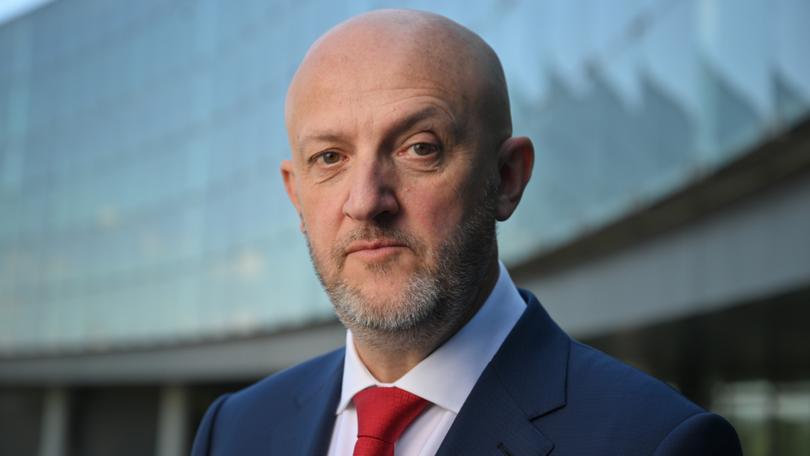We warned you: ASIO boss Mike Burgess doubles down on lone-wolf threat
Australia’s top spy has repeated his warning about the risk of lone-wolf terror attacks after the recent spate of horrifying Sydney violence.

Australia’s top spy has repeated his warning about the risk of lone-wolf terror attacks after the recent spate of horrifying Sydney violence.
Describing Monday night’s attack on western Sydney church leader Bishop Mar Mari Emmanuel as allegedly terror-related, Australian Security Intelligence Organisation chief Mike Burgess said it fit the threat profile he had warned about in 2022.
“When we lowered the terrorism threat level to possible, I said at the time possible does not mean negligible and the most likely attack is an individual that goes to violence with little or no warning with a knife, car or gun,” Mr Burgess said in Canberra on Tuesday morning.
Sign up to The Nightly's newsletters.
Get the first look at the digital newspaper, curated daily stories and breaking headlines delivered to your inbox.
By continuing you agree to our Terms and Privacy Policy.“Sadly we’ve seen that in this case, and our investigation and support of the police continues.”
Prime Minister Anthony Albanese convened the national security committee in the hours after NSW Police and the AFP confirmed they were treating the attack at the Christ The Good Shepherd Assyrian church in Wakeley on Monday night as terror related.
He described the recent violence as un-Australian.
“There is no place for violence in our community. There’s no place for violent extremism,” Mr Albanese said.
“We’re a peace-loving nation. This is a time to unite, not divide, as a community and as a country.”
Mr Burgess said ASIO was supporting the police investigation into the Wakeley attack, which was allegedly committed by a 16-year-old male, and was looking into whether or not he acted alone.
“We support the NSW Government and the police for calling this a terrorist incident,” he said.
“It does appear to be religiously motivated but we continue our lines of investigation. At the same time, our job is to look at individuals connected with the attacker to assure ourselves there’s no one else in the community with similar intent.
“At this stage, we have no indications of that.
“But it’s prudent that we do this to determine there’s no threats or immediate threats to security. At this time, we’re not seeing that.”
Mr Burgess said applying the “terrorist attack” label to the Wakeley attack but not to the Westfield Bondi Junction massacre on Saturday was “simple”.
“To call it a terrorist act you need indications of information or evidence that suggest actually the motivation was religiously motivated or ideologically motivated,” Mr Burgess said.
“In the case of Saturday, that was not the case. In this case, the information we have and the police have indicates that is strongly the case. That is why it was called an act of terrorism.”
Investigators will look overseas for answers to how the alleged Wakeley attacker had been radicalised, Australian Federal Police Commisioner Reece Kershaw said.
“We have pretty good mechanisms in place . . . whether that’s through monitoring and other means, using our Five Eyes partners for example and other agencies to get a feel for what’s happening in the Australian community and globally,” Mr Kershaw said.
“A lot of our targets sit outside of Australia. Not just in terrorism but organised crime as well. So we have a very sophisticated intelligence co-operation between all the agencies.”

